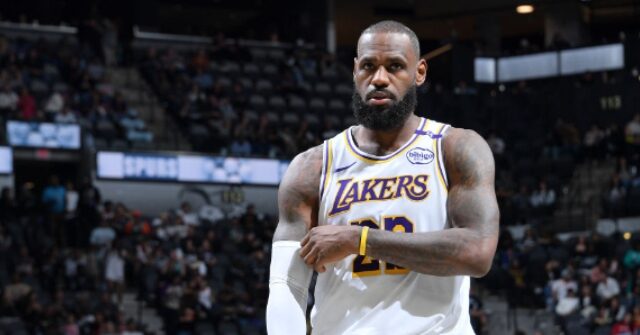NBA superstar LeBron James has recently announced his decision to take a hiatus from social media, citing the need for some personal space and reflection. This announcement came after he shared a message from sports agent Rich Kleiman, who is known for representing fellow NBA star Kevin Durant. In his post, James conveyed a sense of farewell to his online followers, stating, “And with that said, I’ll holla at y’all! Getting off social media for the time being. Y’all take care.” This decision underscores not only James’s desire for a break from the constant online scrutiny that comes with celebrity status but also reflects a larger discontent regarding how sports media operates today.
Kleiman’s original post, which sparked James’ response, was a scathing critique of the sports media, particularly targeting the trend of negative coverage that often prioritizes sensationalism and “clickbait” over substantive reporting. He expressed confusion over why some sports media outlets continue to adopt a negative lens in their coverage when sports have the potential to unite fans and offer an escape from the harsh realities of life. Kleiman articulated a desire for a media landscape that emphasizes positivity and celebrates the unifying power of sports, suggesting that the current trends are a diversion from what should be a shared experience for fans.
Further emphasizing his stance, Kleiman pointed out the impact that sports can have in bringing people together, calling the negative focus of some sports media outlets not just futile but counterproductive to the essence of sport. He suggested that media platforms, due to their vast influence, have a responsibility to foster a more positive environment instead of perpetuating negativity. Kleiman’s remarks resonated with James, who is well aware of how public perception can be skewed by sensational coverage and the pressure that comes with being in the spotlight, especially during challenging times.
Before Kleiman’s post, James had already been vocal about the “haters” he perceives within the sports media landscape, particularly in his defense of Coach Deion Sanders and the University of Colorado football team. He called out those who criticize but then retreat when the team succeeds, highlighting a perceived double standard among commentators. His comments reflect a deep-seated frustration with the inconsistent narratives often propagated by sports journalists, and he expressed his pride in what Coach Sanders and the team have accomplished. This mindset showcases James’s commitment to supporting fellow athletes and advocating for a more constructive conversation around sports.
James’s decision to step back from social media, particularly at a time when he feels frustrated with media narratives, is not just about personal relief; it also serves to spotlight the ongoing issue of negativity in sports reporting. By taking this break, James joins a broader discussion concerning the role of media in shaping public discourse around sports, particularly in an era where opinions can rapidly spread across social platforms. The call for positivity and greater unity resonates not only among athletes but also with fans who seek a more uplifting engagement with the sports world.
Ultimately, LeBron James’s brief departure from social media, coupled with Rich Kleiman’s critiques, reflects a growing awareness and pushback against the pervasive negativity in sports media. As James takes time away from the online sphere, it may highlight the necessity for a shift in how sports are covered, aiming for narratives that celebrate achievement and camaraderie rather than division and dissent. The hope is that such introspection will lead to more responsible and positive sports journalism, allowing fans and players alike to enjoy the camaraderie and joy that sports inherently offer.

